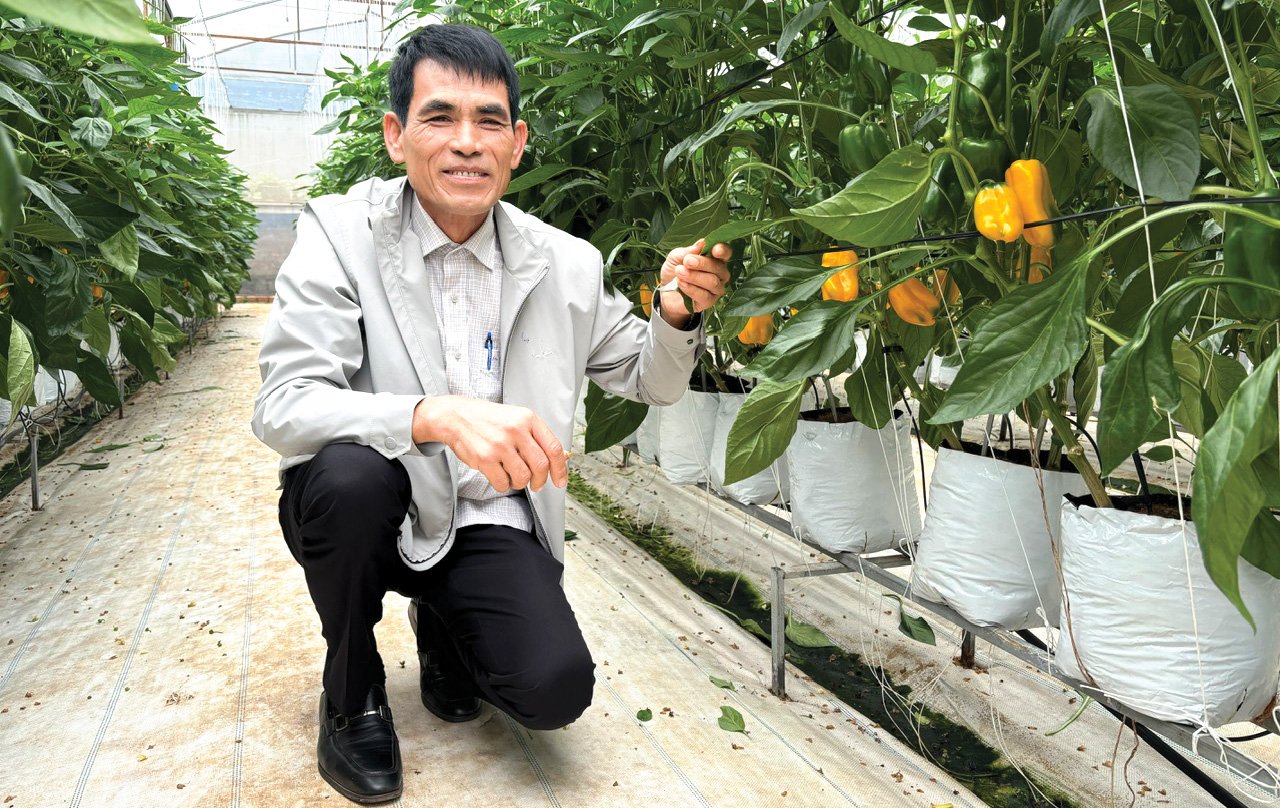 |
| Director of An Phu Cooperative Le Van Ba next to the chili garden |
• AGRICULTURAL PRODUCTS OUTSIDE THE BORDER ARE SUCCESSFUL
“If we only limit ourselves to the domestic market, our farmers’ agricultural products will face too many risks. Let’s open our eyes, go beyond the border, and direct our agricultural products to more distant markets. That is the way for Vietnamese agricultural products to grow. Agricultural products going beyond the border is a success,” said Mr. Le Van Ba, Director of An Phu General Service Agricultural Cooperative, a cooperative in Duc Trong vegetable area. An Phu Cooperative is also one of the few cooperatives that can directly export agricultural products to the Singapore market with various types of sweet peppers.
“In fact, when restructuring in 2014 and before, our An Phu Cooperative only focused on production and supply for the domestic market. We grew vegetables, chili, tomatoes and sold them to traders or companies, not paying much attention to where our agricultural products went. But over time, the price of agricultural products became too unstable, we changed direction and determined that we had to export agricultural products to be sustainable,” Director Le Van Ba shared. According to Mr. Ba, the domestic market also has a limited number of consumers. Meanwhile, vegetable output is increasing every day, from both the Da Lat - Duc Trong vegetable region and provinces and cities across the country. Therefore, the level of competition in the domestic market is very high. According to him, the more we grow, the more surplus agricultural products there are, the greater the pressure on farmers.
“From 2022 to now, An Phu has been determined to export chili products. We have switched to cultivating products for export to the Singapore market. Currently, the cooperative's chili output reaches 1,000 tons/year, the export output reaches about 40 - 45%, specifically from 400 - 500 tons/year. In fact, this is a direction that brings great efficiency to our farmers because the price is very stable and the market is very large", Mr. Le Van Ba provided. Currently, An Phu has about 15 hectares of greenhouses specializing in growing various types of sweet peppers and tomatoes. In addition, the cooperative also cooperates with over 40 farmers growing tomatoes and chili peppers, mainly supplying the domestic market.
“Don’t demand too much from the export market. The main thing is to prioritize stability and openness of the market. Like An Phu, a profit of 30% is already very good. We cannot demand that the chili and eggplant crops will have a “hit” price and earn billions in a short time. Agricultural production should focus on planning and sustainability,” Mr. Le Van Ba advised.
• GLOBALGAP TO GAIN MARKET SHARE FOR SWEET PEPPERS
Mr. Le Van Ba informed that everyone wants to export, the important thing is that farmers must change themselves, strive to meet the requirements of the target market. For example, Singapore is a very demanding market, requiring high quality chili and An Phu Cooperative has had to change and upgrade a lot to meet the needs of partners. The requirements of the Singapore market for sweet chili are very high. From pesticide residues, fruit size, uniformity..., requiring farmers to improve their cultivation skills. From production according to VietGAP standards, by 2023, the Cooperative has built GlobalGAP standards. This standard requires farmers to comprehensively upgrade the production process. From land improvement, use of agricultural materials, training of farmers as well as workers..., all must follow strict procedures, be consulted and certified by independent organizations according to regulations. “Because the GlobalGAP process is very strict, to ensure the quality of agricultural products and comply with regulations, An Phu has built a closed farming process, from seedling incubation - planting - harvesting are all within the production chain,” said Mr. Le Van Ba.
One thing that motivates An Phu Cooperative members is the support from the State. An Phu Cooperative is supported by the Science and Technology sector to build GlobalGAP. Mr. Ba said that the cost of consulting, documents... to achieve GlobalGAP certification is up to 165 million VND. The Cooperative is fortunate to be supported 70% and the Cooperative will contribute 30%. Of course, GlobalGAP must be inspected, evaluated and re-certified annually at a cost of 60 million VND/year. However, the Cooperative realizes that applying GlobalGAP helps build a safe and sustainable production process, expanding export opportunities, so it carries out re-certification procedures annually.
According to Mr. Le Van Ba, the international market for Vietnamese agricultural products is still very open. This is the driving force for farmers to change themselves, boldly step out of their “comfort zone”, and conquer larger, more potential markets.
Source: https://baolamdong.vn/kinh-te/202506/dua-nong-san-vuot-dai-duong-0ea1c03/










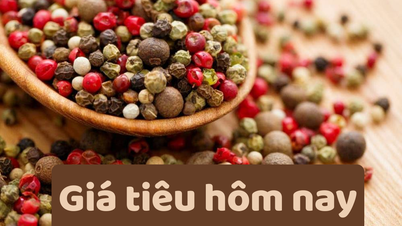
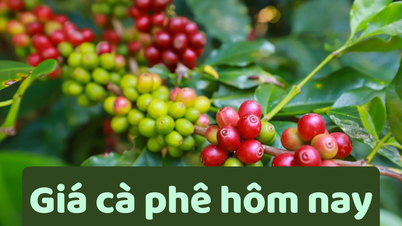

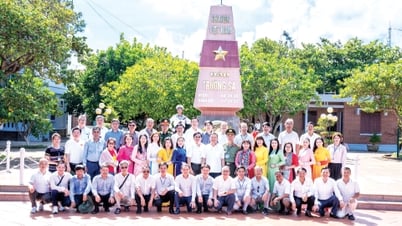





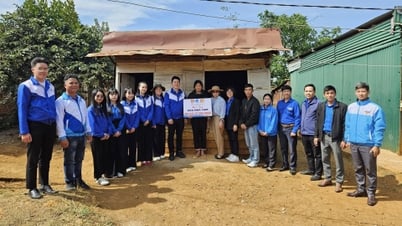
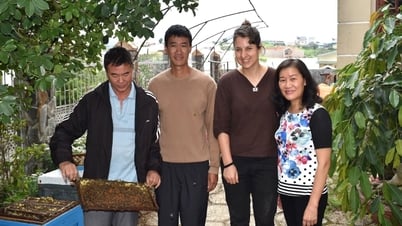

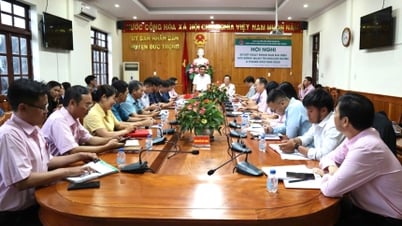

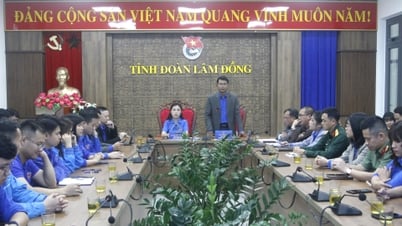










































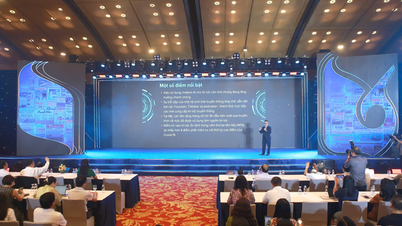








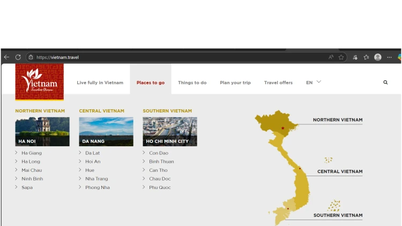





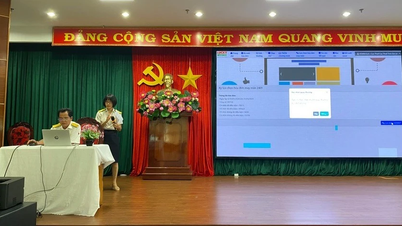

















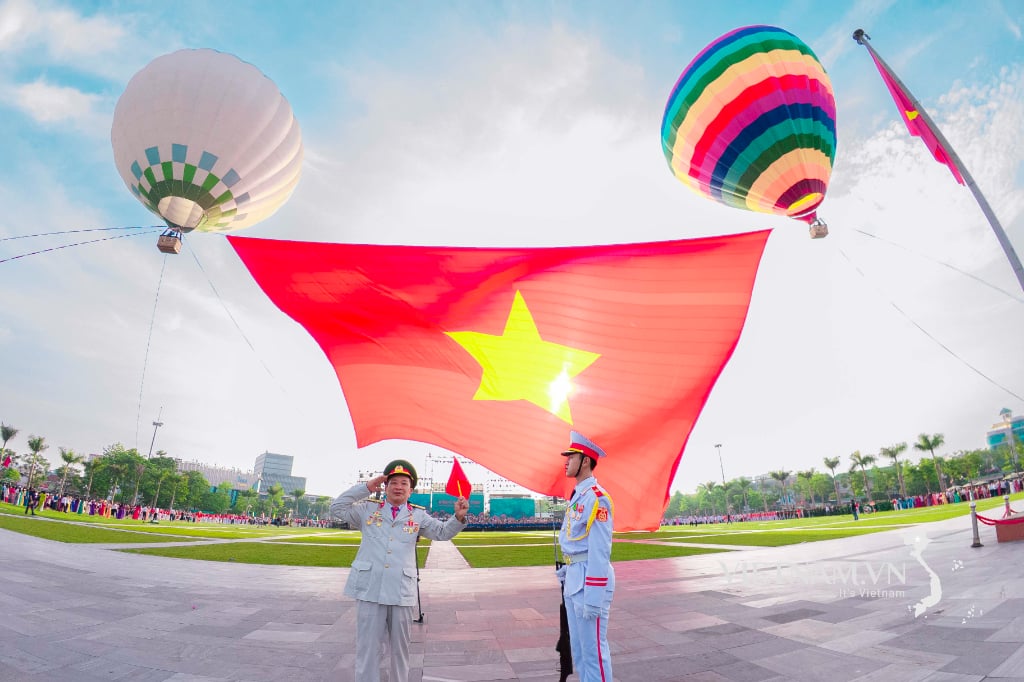
Comment (0)